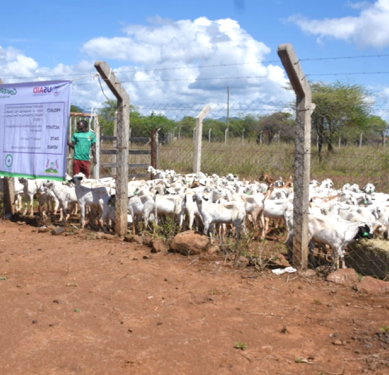Kenya Livestock Commercialization Project (KelCoP) is a six (6) years (2021/2027) project designed by the International Fund for Agriculture Development (IFAD) and the Ministry of Agriculture, Livestock, Fisheries and Irrigation (MALF) of the Government of Kenya (GoK) and participating Counties. The Livestock sub-sector plays an important role in the national economy. .
The sector is an ideal enterprise to improve household food and nutrition security, increase incomes, create jobs and contribute to sustainable livelihoods of many rural people living below the poverty line. The project will focus on selected value chains, namely small ruminants, local improved breed poultry and bee-keeping which have the potential to provide productive employment and food security opportunities for women, youth and marginalized segments of the population.
The KeLCoP design is informed by lessons learned and best practices from a range of previous and ongoing IFAD-financed projects in Kenya and other countries in the region. Focal areas for the project intervention within each County will be selected based on: incidence and prevalence of rural poverty; aridity of the geographical area; potential for commercialization of selected commodities; population of targeted livestock; priority given to the value chain by the county in its strategic plans; potential to build on and collaborate with existing development interventions and security.

Component 1: Climate-smart production enhancement for the livestock through;
- Policy and institutional support to the national government;
- Integration of vulnerable HHs into value chains through
- Innovative approach that combines a graduation and a gender action learning system approach.
- Business training modules and nutrition education and inputs based on the experience of an IFAD/EU funded e-finance scheme.
- Implement an Information Communication Technology (ICT) based approach to extension services by using e-extension based models
- Breed improvement and implement activities that enhance the climate resilience of the livestock feed production systems
- Rehabilitation of rangelands, fodder storage and climate resilient water infrastructure such as solar-powered boreholes, sub-surface dams, rock catchments, water pans and shallow wells and
Component 2: Support to Livestock Market Development through;
- Market infrastructure and capacity development;
- Investor forums to enhance the engagement and investment by the private sector;
- Building inclusive value chains through matching grants for smallholder commercial producers, innovative star-ups by the youth, peer to peer exchange and training of young traders, young transporters, multi-stakeholder platforms, and putting in place a dash board for crowd-funding of credible entrepreneurs.
More Projects
-
Livestock, Climate and Systems Resilience (LCSR)
RECONCILE is working in collaboration with ILRI to deliver on the Livestock, Climate and System Resilience (LCSR) -Project in Baringo
-
Participatory Rangelands management Project
Piloting the use of Participatory Rangeland Management Project (PRM) was a four-year project funded by the European Union (EU). Implemented
-
Kenya Livestock Commercialization Project (KELCOP)
Kenya Livestock Commercialization Project (KelCoP) is a six (6) years (2021/2027) project designed by the International Fund for Agriculture Development